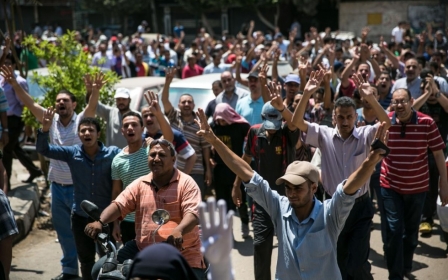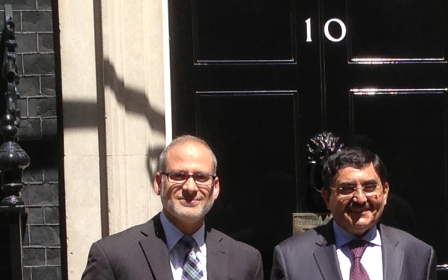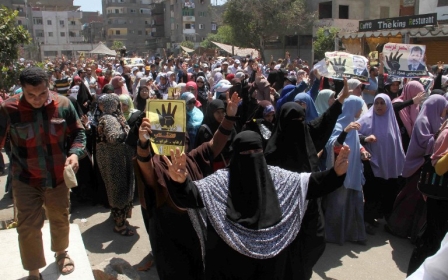Senior Brotherhood leader says UK pressed to label group as 'terrorist'

A senior member of the Muslim Brotherhood said the British government should not bow to pressure from Egypt and certain Gulf States to label his group a "terrorist organization."
"We expect London not to bow to these pressures", the organization's secretary-general, Ibrahim Munir, told Anadolu Agency this week.
On Sunday, the Financial Times newspaper reported that Whitehall had delayed the publication of a report on the Muslim Brotherhood which found that the group should not be designated a terrorist organisation with ministers reportedly concerned that the results will upset the UK's allies in the Gulf and Saudi Arabia.
The delay, said the Brotherhood's Munir, was the result of "pressures" on London to steer the report in a particular direction.
"Those in Egypt and the Gulf who supported the review [of the Brotherhood] expected to find in it a justification to accuse the Brotherhood of engaging in terrorism, which they failed to do," he said.
Partner at ITN solicitor Tayab Ali, who has represented the Brotherhood, said: “During a time of uncertainty in the Middle East, it’s exceptionally important that the British government acts with credibility and diligence and where there is no evidence that the Muslim Brotherhood has participated in, or is a terrorist organisation, the British government should make that clear and make the UK review announcement sooner rather than later.”
The report was requested by Prime Minister David Cameron as an internal government review of the Muslim Brotherhood's "philosophy and activities."
The move came months after elected Egyptian president Mohamed Morsi, a Brotherhood leader, was ousted by the army in the summer of last year following demonstrations against his single year in office – a move Morsi supporters describe as an illegitimate military "coup."
Shortly after Morsi's removal from office, the 85-year-old Islamist movement was labeled a "terrorist group" by both Egypt and Saudi Arabia.
According to London, the review – led by UK Ambassador to Saudi Arabia Sir John Jenkins – seeks to "understand" the movement and its impact on British national security and London's interest in maintaining stability in the Middle East region.
"We don't expect Britain to make such a move after its investigations affirmed our innocence," the Brotherhood's Munir said on Monday.
Any efforts by Egypt or Gulf states to pressure the UK, he said, "will end in failure because the Brotherhood's history is crystal clear; all the group's activities are open to the whole world."
After last year's coup in Egypt that ousted President Mohammed Morsi, the group was declared a terrorist organisation. Hundreds of its members were arrested and detained with many sentenced to life in prison and others to death.
Over the past eight months, the Egyptian government has also seized 342 companies, 1107 charitable associations and 174 schools owned by Muslim Brotherhood figures, along with the finances of 1,441 group leaders, a legal source from the Islamist movement said Monday.
New MEE newsletter: Jerusalem Dispatch
Sign up to get the latest insights and analysis on Israel-Palestine, alongside Turkey Unpacked and other MEE newsletters
Middle East Eye delivers independent and unrivalled coverage and analysis of the Middle East, North Africa and beyond. To learn more about republishing this content and the associated fees, please fill out this form. More about MEE can be found here.




